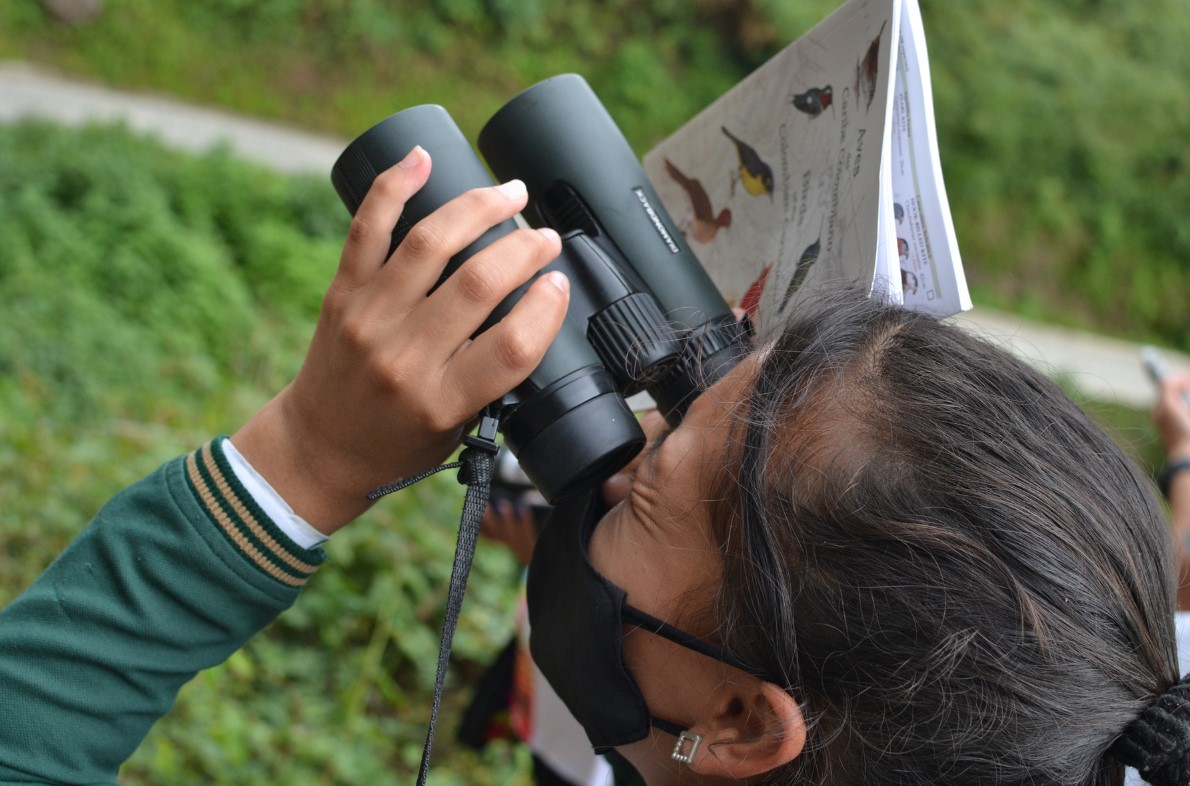Building a women-led movement for nature: Q&A with Women for Conservation
Written by Olivia Nater | Published: January 3, 2023
Through our Global Partners program, Population Connection supports a growing number of grassroots organizations around the world working to increase access to education, public health and family planning services. Their efforts make a vital difference in their local communities and represent the “final step” in our shared work to make the world a more just and sustainable place for everyone.
Get to know our wonderful partners in this Q&A series! Women for Conservation‘s Vice President & Conservation Director, Isabella Cortes, explains how the organization helps safeguard Colombia’s unique biodiversity by empowering women in rural communities.
What prompted you to start your organization?
Women for Conservation was founded in 2019 by my mother, Sara Inés Lara, to involve rural communities in habitat conservation around critically endangered wildlife reserves. Long-term conservation success can only be achieved through involving and empowering local people in conservation work, which is why we are dedicated to breaking down educational, economic, and health barriers.
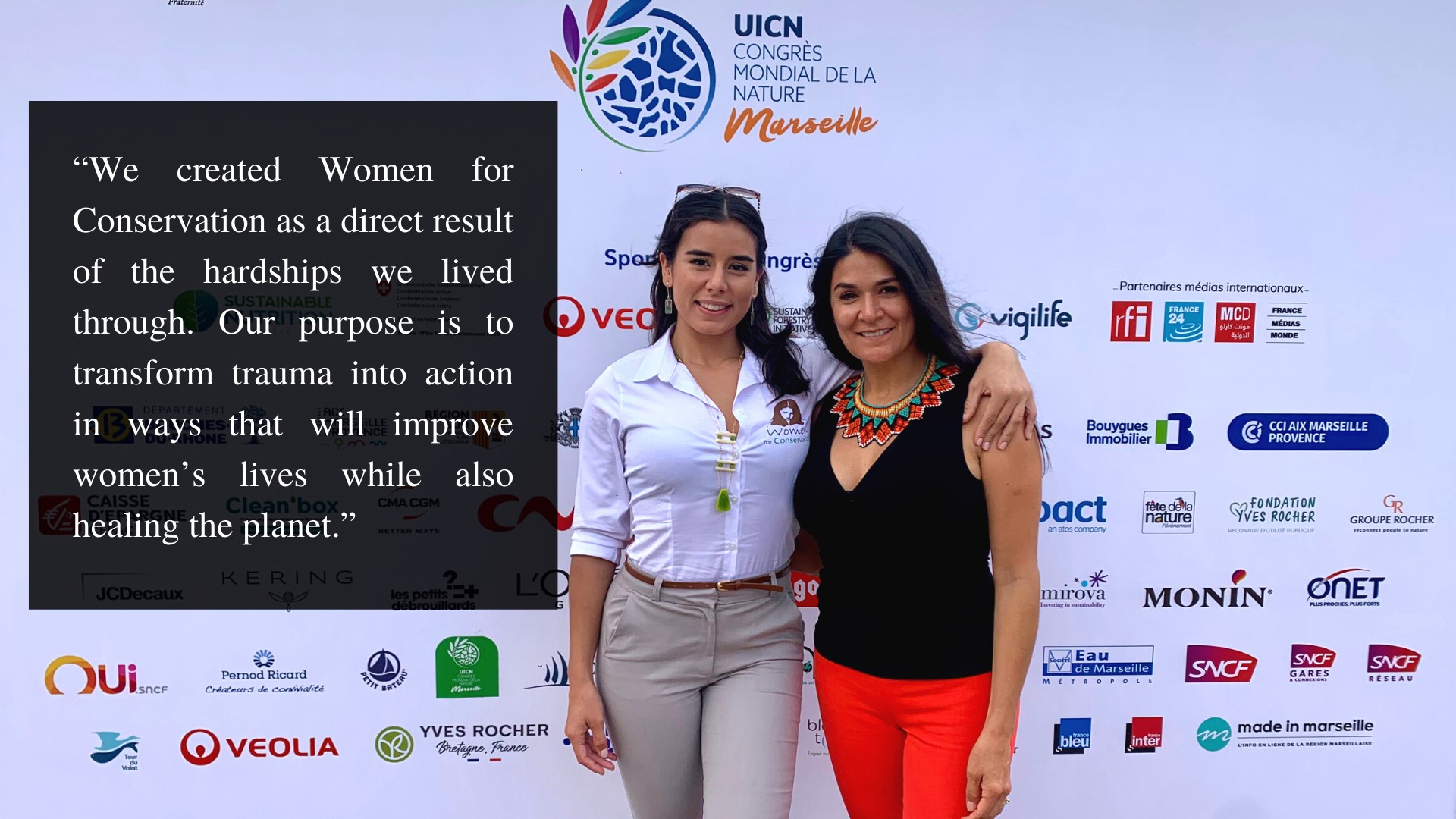
With the understanding that thriving communities are better able to be stewards of nature, we maximize our impact by empowering women in Colombia while simultaneously protecting rare and endemic wildlife.
Our organization recognizes that empowering women has a deep and long-lasting impact on protecting the environment. When women are involved in conservation programs, not only do these programs gain more acceptance from the community, but they also have a greater impact on alleviating poverty and motivating families towards sustainable livelihoods that reduce environmental destruction.
What programs or projects are you currently working on?
Our holistic approach partners with local women’s groups to provide workshops and training for conservation education, sustainable livelihoods, and family planning. We currently work around ten of the most important biodiversity hotspots in Colombia, to combat the current extinction crisis through women’s empowerment initiatives.
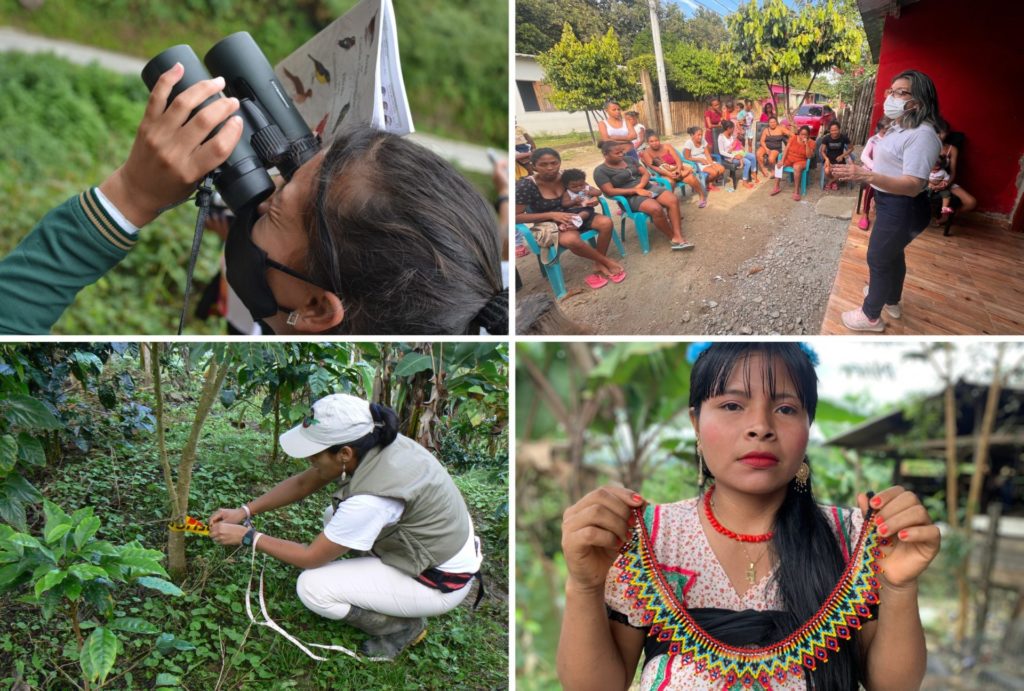
Our community-centered approach arose from the understanding that local people cannot invest in biodiversity conservation when they are struggling to meet their most basic needs. By enabling access to family planning resources, we prevent unintended pregnancies, which alleviates poverty, increases literacy rates, and benefits community health. By providing women with the option to have smaller families, we reduce the pressure to develop land, halt deforestation, and protect critical biodiversity habitats. By providing training in sustainable livelihoods, we offer alternative economic opportunities which reduces dependence on natural resources to ensure biodiversity protection. And by training and educating about nature conservation, we get communities directly involved in biodiversity protection, with a special focus on women and children for long-term success.
These three initiatives mutually benefit community well-being and climate resilience, while ensuring the long term protection of key biodiversity sites.
What do you hope to achieve in the next five years?
Our dream is to empower women to become conservation leaders, which is why we are working to strengthen our programs and expand our project sites. We strive to become a global organization that empowers women in the world’s most threatened biodiversity areas. In the past year, new partnerships and funding enabled us to serve six times as many people as the previous year, and we expect to continue growing exponentially in coming years to positively impact more communities while saving endangered species on the brink of extinction.
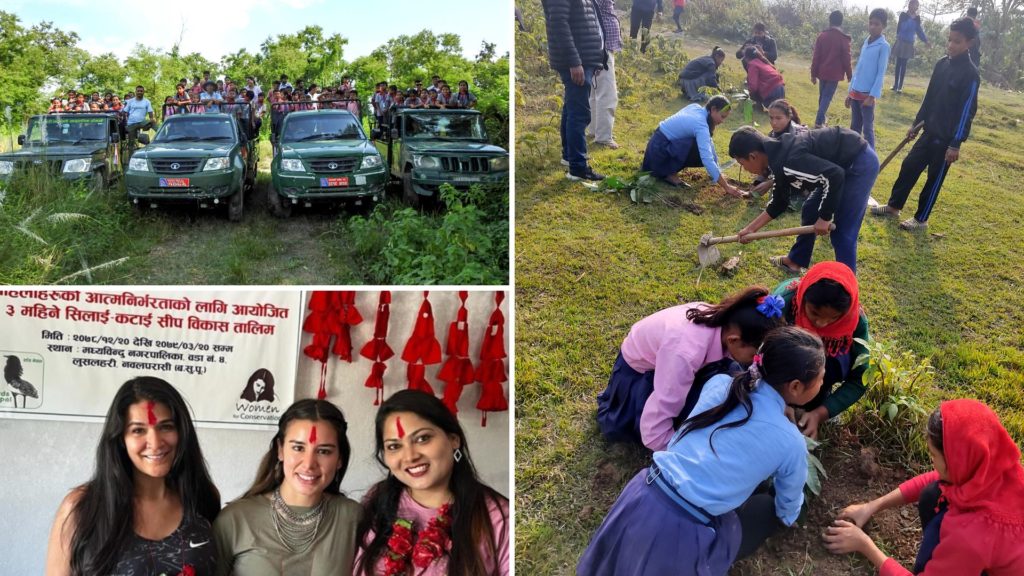
We have already begun reproducing our woman-centered conservation mission in Nepal, Madagascar, and Sierra Leone, with a goal of having three project sites on each continent within the next five years. Experts have named the interconnecting initiatives of women’s empowerment, access to family planning, and girl’s education as one of the most important tools to build community climate resilience and curb global warming, which is why we are urgently working to maximize the scope of our programs in this critical moment for biodiversity protection.
What have been some of the greatest challenges you have faced?
Our greatest challenge has been breaking down stigmas against providing accessible family planning both on a local and global level.
In rural Colombian communities, family planning has traditionally been a taboo subject, and in the past it was a struggle just to get access and resources to the women who desperately wanted it. By building trust in communities, partnering with local women’s groups, and providing comprehensive sexual health education, we have been extremely successful in destigmatizing reproductive healthcare. Our work has broken down barriers to directly provide 1,000 families with desired access to family planning procedures, including implants, tubal ligations, and vasectomies for men.
Giving women the resources to prevent unwanted pregnancies is one of the most powerful ways we can empower women, build community climate resilience, and reduce stress on natural resources. We choose to provide sexual reproductive health programs because smaller families reduce the pressure to develop land and deforest, which in turn saves biodiversity
While experts agree that tackling the unmet need for family planning and the interconnected issue of girl’s education is essential for biodiversity protection and climate resilience, these subjects are still appallingly underrepresented in global conservation conversations. As a Colombian women-led organization, we are dedicated to advocating for rural women disproportionately burdened by climate challenges. Our latest achievement of attaining official International Union for Conservation of Nature (IUCN) membership will provide us an incredible opportunity to bring the issue of voluntary family planning access to the largest global platform of environmental decision making.
What are you most proud of?
We are most proud of our resilience, even in seemingly impossible situations, and successfully promoting sustainable conservation successes despite the ongoing hardships of civil war and the Covid-19 crisis.
The rural Colombian communities where we work have suffered the impact of fifty years of armed conflict in Colombia, with women being disproportionately affected by sexual assault, violence, and lack of access to meaningful educational and career opportunities. The pandemic has only worsened the situation, as lockdowns and economic instability led to increases in both domestic violence and environmental destruction. Despite these challenges, we are connecting the dots between gender equality and community based conservation, and have successfully supported thousands of rural people to become involved with biodiversity protection.
We are also proud of our incredible successes spreading awareness about reproductive health for men and women. Our education work has been so successful at combating stigmas and “machista” (macho/sexist) mindsets that we have increasingly received requests from men wanting access to family planning procedures, allowing us to expand our work to provide vasectomies.
We have also enabled family planning access for many Venezuelan families, who would otherwise be unable to access reproductive healthcare, exacerbating their extremely vulnerable position as refugees. Additionally, we provide workshops to prevent domestic violence while also providing women with access to professional mental health professionals. By partnering with local women’s groups, we have enabled access to reproductive healthcare for 1,000 families, which will positively impact community climate resilience and reduce stress on the natural environment for generations to come.
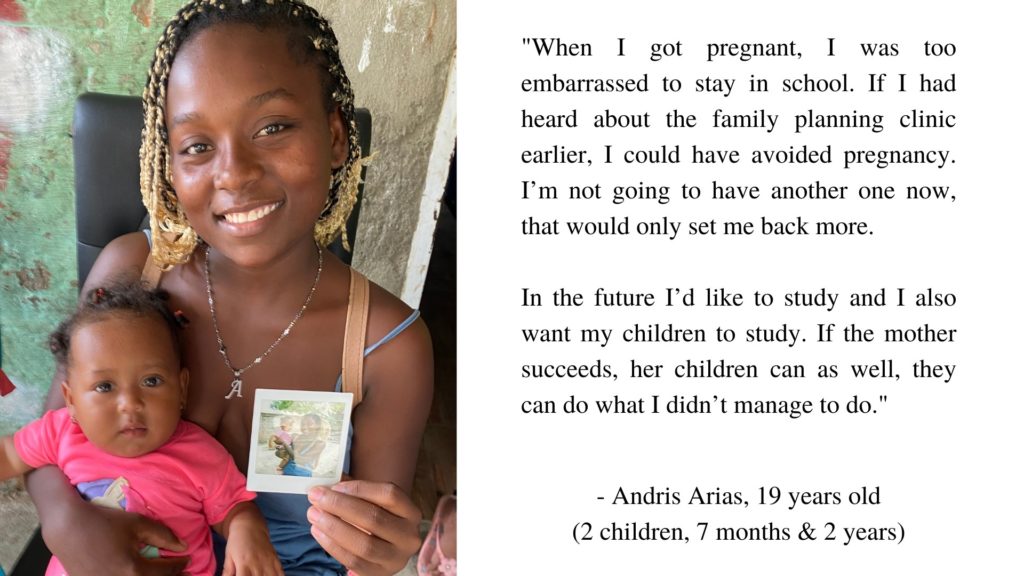
Anything else you’d like to share with Population Connection members?
Women’s empowerment is an essential, but often overlooked, solution to protecting biodiversity and building climate resilience. While the Global North is overwhelmingly responsible for producing carbon emissions and climate change, rural women and communities in the Global South are disproportionately burdened by increasingly common climate disasters.
Unintended population growth due to lack of family planning resources exacerbates this problem, while also leaving communities more vulnerable to food insecurity, cyclical poverty, and water scarcity. Combating the global unmet need for accessible family planning is an essential climate justice issue, and needs increased attention in order to prevent the worst effects of climate change, build climate resilience, and prevent biodiversity collapse.
Women for Conservation is dedicated to centering intersectional women’s empowerment in conservation work, which is why providing access to family planning is an essential part of our holistic mission to mutually benefit community well-being and biodiversity protection.
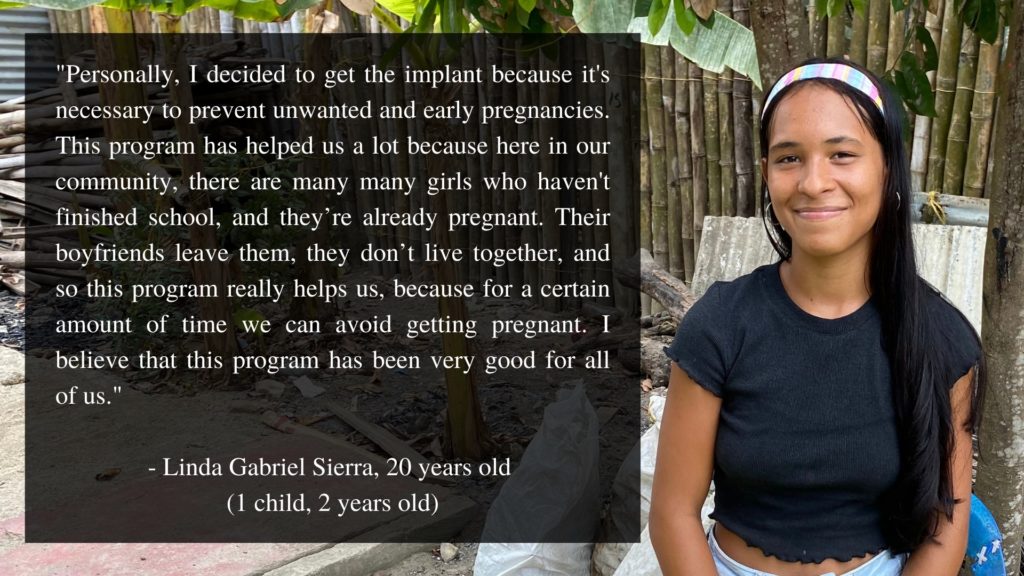
To learn more about Women for Conservation, visit their website, and follow them on Facebook, Twitter and Instagram!

